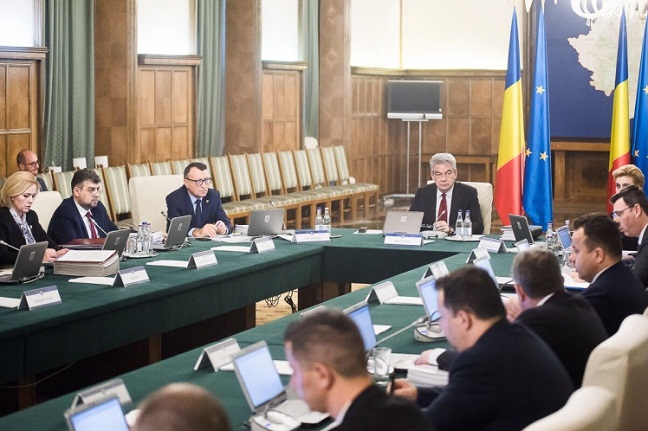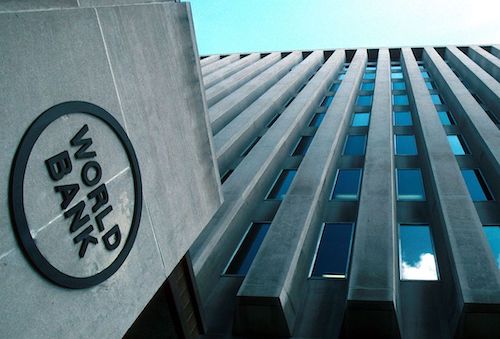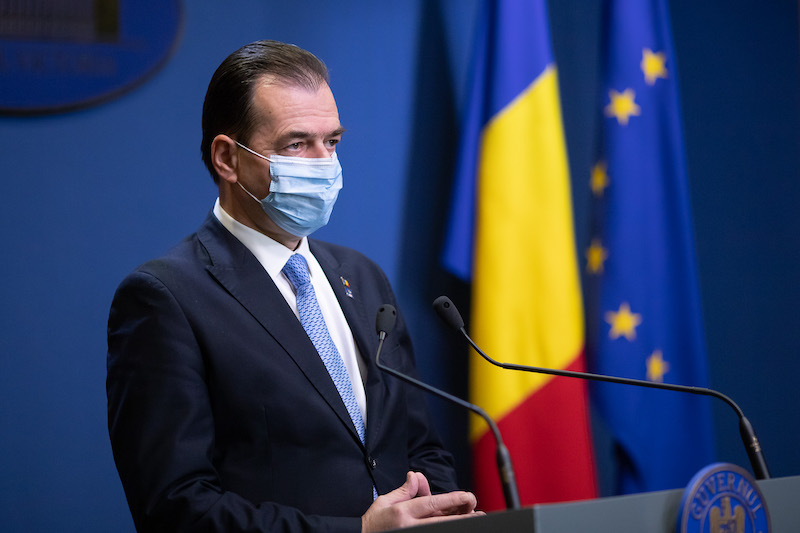Radical changes in fiscal policy: Gross minimum wage rises to 1,900 lei, contributions to Pension Pillar II drop to 3.7%
October 26 2017

Labor Minister Lia Olguta Vasilescu said, at the beginning of a government meeting announcing several fiscal changes, that the minimum wage will rise from 1,450 to 1,900 lei, starting January 1, 2018, while the Finance Minister Ionut Misa announced the implementation of the European directive on combating the outsourcing of multinational profits, but also details about the solidarity tax, which is increasing to 2.25% and changes its name into “the assuring contribution for work". Contributions to Pension Pillar II are also reduced.
"We propose a raise for the country's gross minimum wage to 1,900 lei from 1 January 2018 so that the wages of the Romanians will not be affected by the return of the tax burden. The amount is related to the salary stipulated in the program which was 1.550 lei starting 1 January 2018" Olguta Vasilescu said in the opening of the government meeting, Hotnews.ro reports.
She also presented a draft of Emergency Ordinance whereby the minimum allowance for child raising increases to 1,250 lei compared to 1,233 lei currently, starting January 1, 2018.
Also, the minimum pension will be increased to 640 lei from July 1, 2018.
Finance Minister Ionut Misa announced in the government meeting a radical change in fiscal policy. Misa announced the 16% to 10% drop in income tax, including salary and pension, rents, interest rates, etc.
”Today we have 4.85 million employees who will pay a lower tax on salary income. There are 10 million Romanians who have bank deposits and will pay a lower tax on received interests. There are over 250,000 pensioners who have pensions over 2000 lei and will pay a reduced tax on the amount that exceeds this threshold of 2000 lei. There are over 500,000 citizens who will pay a lower tax on income from self-employed or copyright, including a large number of journalists. All Romanians who rented an apartment, a land or other property will also pay a reduced tax on the rent received. Also, all Romanians and companies carrying out agricultural activities will pay a 10% reduced tax on their income," Finance Minister Ionut Misa explained, cited by Mediafax.
Also, for 450,000 companies with a turnover of less than one million euros, a 1% turnover tax will be imposed, compared with the 16% profit tax.
He also announced the shift of most of the employer's fiscal contribution to employees, as well as retaining from companies a 2.25% of the contribution from the gross salary (the former solidarity fee, renamed „the assuring contribution for work”).
Regarding the Pension Pillar II, Lia Olguta Vasilescu said that, starting next year, the contribution decreases from 5.1% at present to 3.7%. Vasilescu argued that this measure will not "affect the current nominal value".
"More specifically, the amount paid today to Pension Pillar II administrators will be at least the same the next year, but the drop is needed as a result of 20% gross wage growth," Vasilescu explained.
Also, Ionut Misa warned that Romania will implement, starting with 2018, the European directive to combat the outsourcing of multinational companies' profits, so that companies that "avoid paying taxes will no longer be able to do so".
„With the introduction of this directive, a limited deduction of interest will be imposed, and there will be a "deposit for the amounts transferred abroad by the multinationals, in the attempt to reduce their tax base," the Finance Minister said.
Local - Latest news






